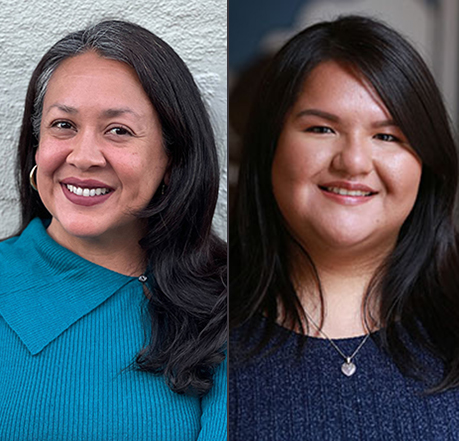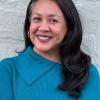Reimagining an Equitable Recovery: A Conversation with Kim Williams
Re-imagining an equitable region is core to NCG’s Equitable Recovery framework. Rather than a return to what once was, can we disrupt, re-imagine, and restructure what’s possible? Kim Williams, Hub Manager at Sacramento Building Healthy Communities (Sacramento BHC, a part of The California Endowment's Building Health Communities 10-year plan) spoke with Crispin Delgado NCG's Public Policy Director, about where philanthropy can continue to step in, how to take a community-centered approach, and why movement-building needs to be at the center. Read the full conversation below!
Crispin Delgado: Thinking about the impact of the pandemic and convergent crises of the last two years, which areas have had the most impact on the communities you support and with whom you build movement?
Kim Williams: At Sacramento BHC we’re serving communities who have been historically underrepresented. Prior to the pandemic, these communities already faced disparities and the pandemic only exacerbated these challenges. Homelessness, housing affordability, and lack of healthcare resources are unavoidable crises in the Bay Area.
Additional crises that have been brought to the forefront include the digital divide, movements for racial reckoning, and an increase in gun violence. The extreme digital divide for young people, especially young people of color, meant they did not have access to Wi-Fi and, consequently, struggled academically. Far too many youth fell through the cracks during the transition to distance learning and are feeling the consequences as they return to in-person learning.
And more than ever we’re seeing more movements for racial reckoning fueled by an increase in gun violence. The local community was still reeling from the local tragedy and murder of Stephon Clark at the hands of law enforcement. Then more recently, the community again wrestled with the horror of racial injustice as a result of the unimaginable murder of George Floyd. And the most recently, Sacramento made national headlines yet again as a result of the largest mass murder in the City’s history, leaving community members angry, scared, and exhausted.
Crispin Delgado: How have community partners stepped up to meet the immediate needs of the community?
Kim Williams: During the pandemic, community partners made dramatic shifts to serve community members and took on new and expanded roles to provide for the basic needs of young people and families. For example, just before the pandemic, Sacramento BHC had been focused on advocacy campaigns for the re-allocation of the law enforcement budget.
Crispin Delgado: It’s amazing that BHC was focused on advocacy around re-allocating the law enforcement budget, and it makes me curious, in what ways were these dramatic organizational pivots made?
Kim Williams: The organization had to adjust quickly to serve food to local families, provide Wi-Fi and meet the basic needs of families due to the crisis. Unfortunately, some community-based organizations could not pivot or shift and have since closed their doors.
Crispin Delgado: How have communities responded to the economic and social impacts of the pandemic?
Kim Williams: BIPOC community members were disproportionately affected by the negative economic and social/health impacts of the pandemic. Though in our experience, BIPOC community residents persevered against a myriad of economic and social/health barriers. Many were furloughed or lost their jobs and as schools shut down families were left without access to resources like technology and basic needs such as food. Against this backdrop, community members also navigated escalations of youth violence in our communities, mental health, and wellness challenges, and an increasing distrust of government and government funding allocations, which affected their comfort in government-run COVID testing sites and vaccines.
Crispin Delgado: Yes, the impacts of COVID had such immense ramifications on these communities. Where do you see momentum building for changing the systems that consistently disproportionately affect the low-income and communities of color?
Kim Williams: There is momentum in Sacramento in the area of government accountability toward racial equity. Through the work of GARE and other community-led efforts, partners have demanded transparency, accountability, and a race equity lens in government funding allocations. There has been an increased focus on racial equity throughout the City of Sacramento. In the last year, a group of individuals and community-based organizations established the Racial Equity Network which is working collaboratively with the City to guide, support, and hold accountable its initial racial equity work.
Crispin Delgado: NCG assembled an equitable recovery framework for philanthropy in partnership with local leaders and policy advocates. What aspects of that would you say resonate as particularly useful for your communities?
Kim Williams: Among the areas of focus in the equitable recovery framework, Sacramento BHC would name that the third principle of the framework, Advancing Housing Stability Strategies, tops our list. For us, this is because Sacramento is experiencing the negative impacts of high housing costs - lack of affordable housing, and the increased number of unhoused individuals, especially for BIOPIC living in communities most impacted by COVID. Sacramento must address the tremendous existing needs of unhoused community members, the increasingly high rental rates, lack of affordable housing, and discriminatory evictions while also addressing the needs of individuals and families living in substandard conditions.
We then prioritize the following principles: ensuring access to quality healthcare and mental health services, promoting economic opportunity for all, advocating for incarcerated populations, and defending access to safe learning environments. The issues Sacramento is facing toward an equitable recovery are systemic in nature and will require multi-year general operating support dollars to address.
Crispin Delgado: What would be the most helpful action from philanthropy to strengthen the progress of your work to build movement for racial equity and an equitable recovery?
Kim Williams: Philanthropy can best serve community by trusting its grantee partners and removing barriers to accessing funding and capital. The requirements for funding need to be clear and need to be minimal. Far too often, nonprofits and CBOs are forced to shift and pivot because of changes in philanthropic priorities as opposed to philanthropy shifting and pivoting because of community priorities. We need multi-year general operating support.
Crispin Delgado: Is there a particular story you would elevate as illustrative of the power of community to shape its destiny in the face of the pandemic and convergent crises?
Kim Williams: The story of the creation of Sacramento Investment Without Displacement is particularly illustrative of the power of community, taking hold of leadership toward its own destiny. A new major development was underway in Sacramento that would prompt massive gentrification and threaten the livelihood of thousands of Sacramentans. Amidst a global pandemic, a group of CBO leaders and community stakeholders came together to protect the most unrepresented and underrepresented communities in Sacramento. The work of SIWD was to address convergent crises including housing, environmental justice, economic development, and racial inequity. SIWD fought hard to win Community Benefits from the developer and the City of Sacramento. Led by women of color, CBO Executive Directors facing off against mainly White Male politicos/developers, SIWD filed and won a lawsuit for Community Benefits. This win was key for the Sacramento community that was most impacted by the project, as this community was also greatly impacted by COVID cases and unemployment. The community didn’t let the pandemic stop them from lifting their voices and using their collective power to fight for what residents needed.
Crispin Delgado: Stories like this are exactly why philanthropy must continue to lean into trust-based grantmaking practices. Kim, thank you for chatting with us. I speak for all of us at NCG when I say we appreciate everything you're doing for local communities.
Kim Williams: Thank you, Crispin! Please let your member community know they can reach out if they see an opportunity for collaboration. We are all in this, connect with me at [email protected].







